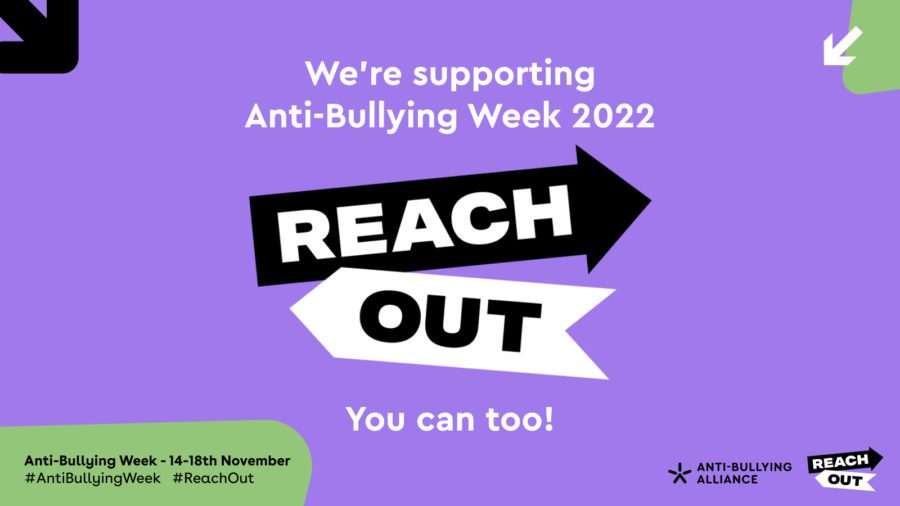Here at Principal Teachers, we are keen to promote the importance of Anti-bullying week. This year’s theme is ‘Reaching Out’ and we believe this is a message that we need to help share. Bullying affects millions of lives and can leave us feeling hopeless. But it doesn’t have to be this way. If we challenge it, we can change it. And it starts by reaching out.
Bullying is a serious problem in schools today. According to the National Education Association, nearly one out of every five students report being bullied at school. Bullying can have a lasting impact on its victims, causing them to feel isolated, anxious, and depressed. It can also lead to academic problems and interfere with a child’s ability to participate in school activities. As teachers, we play a vital role in supporting students who are victims of bullying and taking steps to prevent bullying from happening in our classrooms and schools.
What Is Bullying?
Before we can talk about how to address bullying, it’s important to first define what bullying is. Bullying has been defined as “unwanted, aggressive behaviour that involves a real or perceived power imbalance.” The power imbalance can be physical, verbal, social, or digital. Some examples of bullying include name-calling, making threats, spreading rumours, putting someone down, excluding someone from a group on purpose, sending mean texts or emails, and manipulating social media posts to make fun of someone.
Why Is It Important to Address Bullying?
There are many reasons why it’s important to address bullying in our schools. First and foremost, bullying is harmful to students’ physical and emotional health. Victims of bullying are more likely than their non-bullied peers to experience anxiety, depression, and sleep disorders. They may also miss school due to anxiety or fear of being bullied again. In severe cases, bullying can lead to academic problems and even suicide.
Furthermore, research has shown that bully victims are more likely than their peers to engage in risky behaviours such as alcohol and drug use in adolescence and young adulthood. They are also more likely to have problems with relationships when they reach adulthood. Addressing bullying is important not just for the victim but for the community as a whole.
How Can Teachers Help?
There are many things teachers can do to help prevent and stop bullying in their classrooms and schools. First and foremost, we need to create a climate of respect where all students feel safe, valued, and included. We can do this by getting to know our students and making an effort to connect with them both inside and outside of the classroom. When we take the time to get know our students as individuals, they are more likely than not going trust us enough to come us if they’re being bullied.
Another way teachers can help is by modelling respectful behaviour towards others both inside and outside of the classroom. When we show our students that we respect others—even those who may be different from us—we send the message that we expect them do the same. We should also make it clear that any form of bullying will not be tolerated in our classroom or school.
Finally, we should teach our students how stand up for themselves and others when they witness bullying occurring. We can do this by role-playing different scenarios with our students or having them write short stories or poems about standing up against bullies. When we equip our students with the skills they need to stand up against bullies, we empower them be part of the solution rather than part of the problem.
Bullying is a serious problem that has lasting consequences for both its victims and the community as a whole. As teachers, we play a vital role in supporting students who are victims of bullying and taking steps toward prevention. By creating a climate of respect in our classrooms and schools, modelling respectful behaviour ourselves, and teaching our students how stand up against bullies, we can make a difference in the lives of our students and help create safer learning environment for all.





